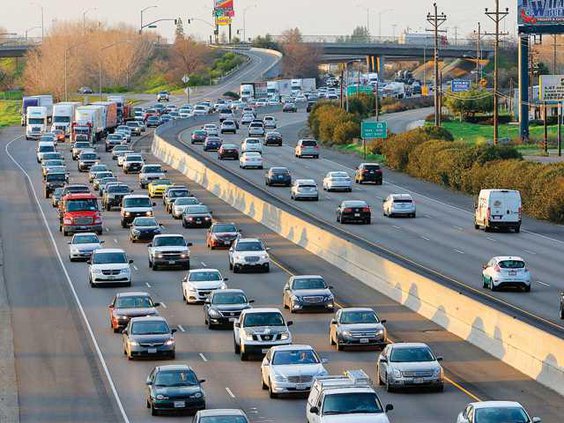Never underestimate the purchasing power of a penny.
The extra penny in sales tax collected on every $2 worth of consumer goods in San Joaquin County has done everything from help launch the Altamont Corridor Express service and completing the Cross-town Freeway in Stockton to putting the Tidewater Bikeway in place as well as widen Highway 99 from two lanes to three lanes from Hammer Lane in Stockton to the Stanislaus River in Ripon.
Measure K — a countywide half cent sales tax first passed by voters in 1990 for 20 years — was reauthorized in 2006 at the ballot box to remain in place until 2040 when it was embraced by 78 percent of the voters. The reauthorization required only a two thirds vote.
Projected funding from the sales tax through 2040 is expected to generate $11 billion for everything from additional freeway lanes and expanded ACE service to more funds for buses by leveraging funding from state and federal sources.
“The voters were very pleased with what we delivered,” Kim Kloeb, senior regional planner with the San Joaquin Council of Governments told Manteca Rotarians Thursday during a noon meeting at Ernie’s Rendezvous Room.
Kloeb — who worked in Georgia, Florida, and another California county as a traffic engineer before joining SJCOG 18 years ago — noted the joint powers agency that oversees implementation of Measure K projects is working with Caltrans and the city on three significant endeavors in Manteca.
uRevamping the 120 Bypass/99 interchange to improve safety and traffic flow.
uPutting in place California’s first diverging diamond at Union Road and the 120 Bypass.
uBuilding a new interchange at McKinley Avenue and the 120 Bypass.
The 99-120 projects at this time have funding in place for the design work. SJCOG is working to secure funding for construction. The project wasn’t programmed in the 20-year spending plan but recent efforts led by Manteca officials that is underscoring the significance importance of the interchange and the fact its long list of fatalities, injured motorists and crumpled cars is heavily populated with residents from throughout the region has prompted SJCOG to make it a priority.
The SCJOG staff is hoping to work with the state to pay for the improvements with savings from various Highway 99 projects throughout the San Joaquin Valley that were funded through the Proposition 1B bond receipts.
The other two projects have tapped into Manteca growth fees, federal funds, a regional transportation fee and Measure K taxes.
Among South County projects Measure K funds have made possible are the widening Interstate 205 to six lanes, the Manteca transit station, the Altamont Corridor Express commute passenger service, widening Highway 99 from Arc Road to the Stanislaus County line, the Jack Tone Road/Highway 99 interchange, the Lathrop Road railroad crossing, and the Tidewater Bikeway plus other endeavors.
It also made it possible for the 120 Bypass to be elevated to four-lane freeway status in the 1990s seven years ahead of schedule by advancing the funding to the state.
Measure K fund also underwrites the Commute Connection for San Joaquin and Stanislaus counties that coordinates vanpools and ridesharing as well as the Freeway Service Patrol.
The services pays for tow trucks to patrol specific sections of freeways during commute periods to render assistance to those that run out of gas, have a mechanical problem, or get in a minor accident in bid to keep traffic flowing.
Thirty percent of Measure K funds go to transit projects, 32.5 percent to congestion relief endeavors such as the freeway widening, 35 percent to local agencies for road projects and street maintenance, and 2.5 percent for railroad crossings safety projects.
To contact Dennis Wyatt, email dwyatt@mantecabulletin.com
Pennies power improved SJ roads





